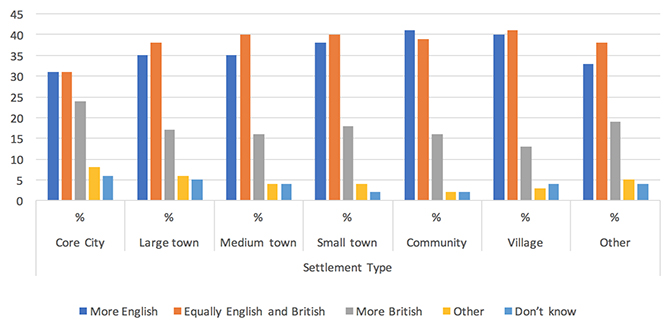 The Greek crisis has exposed the tensions between global economic and financial integration and democracy. Olaf Cramme argues that, while its approach to integration is often inadequate, the European Union still offers the most promising institutional response to this problem of 21st century democratic capitalism.
The Greek crisis has exposed the tensions between global economic and financial integration and democracy. Olaf Cramme argues that, while its approach to integration is often inadequate, the European Union still offers the most promising institutional response to this problem of 21st century democratic capitalism.
The seismic social and economic aftershocks of the global financial crisis have raised a new awareness among citizens: democracy is in a pretty bad shape and national sovereignty is under siege. It is not so much the widely-reported violent demonstrations in Greece which embody this growing unease, but rather hardening cynicism and wide scale disenchantment with politics in the liberal West. We are in a situation where representational power looks worryingly distorted, the most basic demands and concerns of citizens are often ignored and the emotional gap between the elite and the population at large seems to be growing. At the same time, questions of belonging, identity and nationalism have re-emerged on the agenda – and with it a new surge in populist rhetoric.

Lately, an increasing number of politicians and commentators have singled out the European Union and its Economic and Monetary Union (EMU) as the biggest infringement on both democracy and sovereignty. If we want to restore trust in politics, so the argument goes, the powers of the EU and EMU need curtailing so that the free will of the people can finally reign again. To be sure, current practice in European integration in general, and the response to the sovereign debt crisis in particular, leave a lot to be desired – as I argued in a detailed analysis of the changing space for EU politics. But Brussels did not trigger the crisis of democracy or that of sovereignty. Pretending so both misjudges the undercurrents in popular dismay and leads to entirely wrong-headed conclusions.
First, the truism that “all politics is local” can say as much about a healthy relationship between directly elected politicians and their constituents as it does about failed and misled representation. Indeed, as Stefano Bartolini has shown, most mainstream parties or Volksparteien in Western democracies have long since lost their capacity to represent and channel the voices and demands of mass electorates. Non-transparent backroom deals have become the norm in unstable coalition arrangements. “Client politics” and interest groups dominate.
Furthermore, if one takes into account the incidences of improper behaviour ‒ like the UK’s Houses of Parliament expenses scandal ‒ and the rituals of over-promising or breaking electoral pledges ‒ most spectacularly in those Southern European countries now affected by the debt crisis ‒ it is not hard to understand why profound resentment is first and foremost aimed at national political systems. All this is aggravated by the failure of political parties and their representatives to push for fundamental reform and clean up their act. Hence, it is no wonder that the trust of Europe’s citizens is even lower in national governments and parliaments than in the EU’s institutions.
Second, and more importantly, it is the current variant and twist of our capitalist settlement which has by far the biggest impact on both democracy and sovereignty. In a recent seminal lecture, Wolfgang Streek, director of the renowned Max-Planck-Institute, explained this as follows: after two exceptional decades of ‘harmonious growth’ in the 1950s and 60s, the inherent tensions in democratic capitalism – the inevitable dispute between social demands and economic interests – claimed a number of successive victims.
It started with inflation in the 1970s, resulting from trade union-led wage increases and politically guaranteed full employment against the background of faltering growth and a crisis of production. Inflation, contained by monetarism and the high price of unemployment, was subsequently replaced by growing disparity between public spending and public revenues. Rising public debt thus became the next casualty of politics’ attempt to reconcile conflicting social and economic pressures. By the 1990s, when this bargain proved equally unsustainable, private indebtedness, helped on by financial deregulation, had to ride to the rescue and maintain social peace while putting an end to fiscal expansion. As we know today, the policies underpinning this approach were deeply flawed and led to the great financial crash of 2007/08.
The critical insight is that there is a clear limit (roughly a decade) to how long governments and markets can tolerate (a) inflation, (b) high public debt and (c) deregulated private credit – all of which were deemed necessary at some point to make ‘democratic capitalism’ acceptable to the many. The crisis of (d) sovereign debt is merely the next chapter in this eternal distributional conflict, only this time it has been firmly elevated to the international level, erupting into a contest between financial institutions and electorates, governments, states and international organisations. Now, as professor Streek argues, “the issue is how far states can go in imposing the property rights and profit expectations of the markets on their citizens, while avoiding having to declare bankruptcy and protecting what may still remain of their democratic legitimacy.” One could also add sovereignty here.
As a matter fact, more and more people are awakening to this much broader and fundamental challenge. The Occupy Movement is only the most recent and vocal expression – whatever you make of its particular demands or tactics. In fact, ‘Blue Labour’ in Britain has arisen from similar concerns, championing an agenda of “re-democratisation”. Its biggest weakness remains its turn towards micro-democratic entanglement, if not defensiveness. As history ‒ and Oxford’s David Runciman ‒ has taught us, this is highly unlikely to ever alter the character of macro-democracy, and so is largely a side show to the big questions of our times.
Instead, we need to go back to Dani Rodrik’s “political trilemma”. Accepting its core supposition implies that something will have to give if we want to preserve our social-capitalist model in the liberal West: deep global economic and financial integration, national self-determination or democratic responsiveness. At present, powerful forces are pulling in all three directions while withdrawing from globalisation seems like a distant prospect (and may not be a good idea anyway).
The European Union is an ambitious attempt to square this circle. The late economic historian Alan S. Milward explained how the EU should and could come to the rescue of the nation state. Faced with ever-increasing global interdependence and the destructive forces of financial capitalism, the same now applies to democracy. Of course, the EU does so rather imperfectly and, through inappropriate design, often adds its own dimension to the problem. But it is still the most promising idea and response that Europe has advanced so far.
As long as the tensions and contradictions in 21st century ‘democratic capitalism’ remain unresolved, I prefer being influenced by the grey EU technocrat in Brussels to being ruled by the 25-year old credit default swap trader in the City of London.
Please read our comments policy before posting.
This article first appeared on Policy Network on 8 November.






